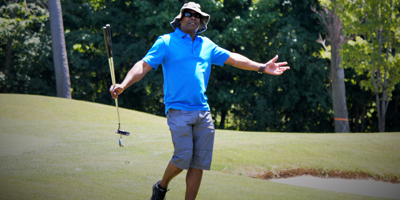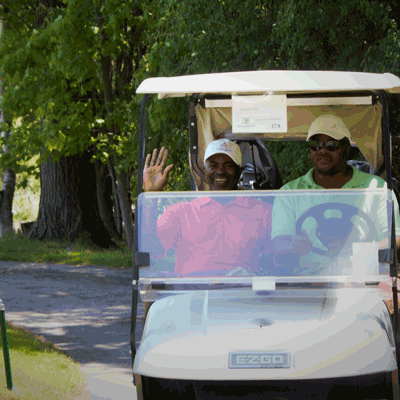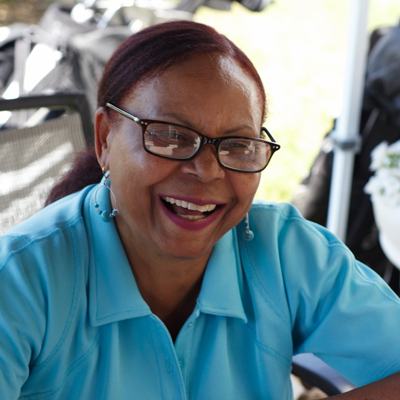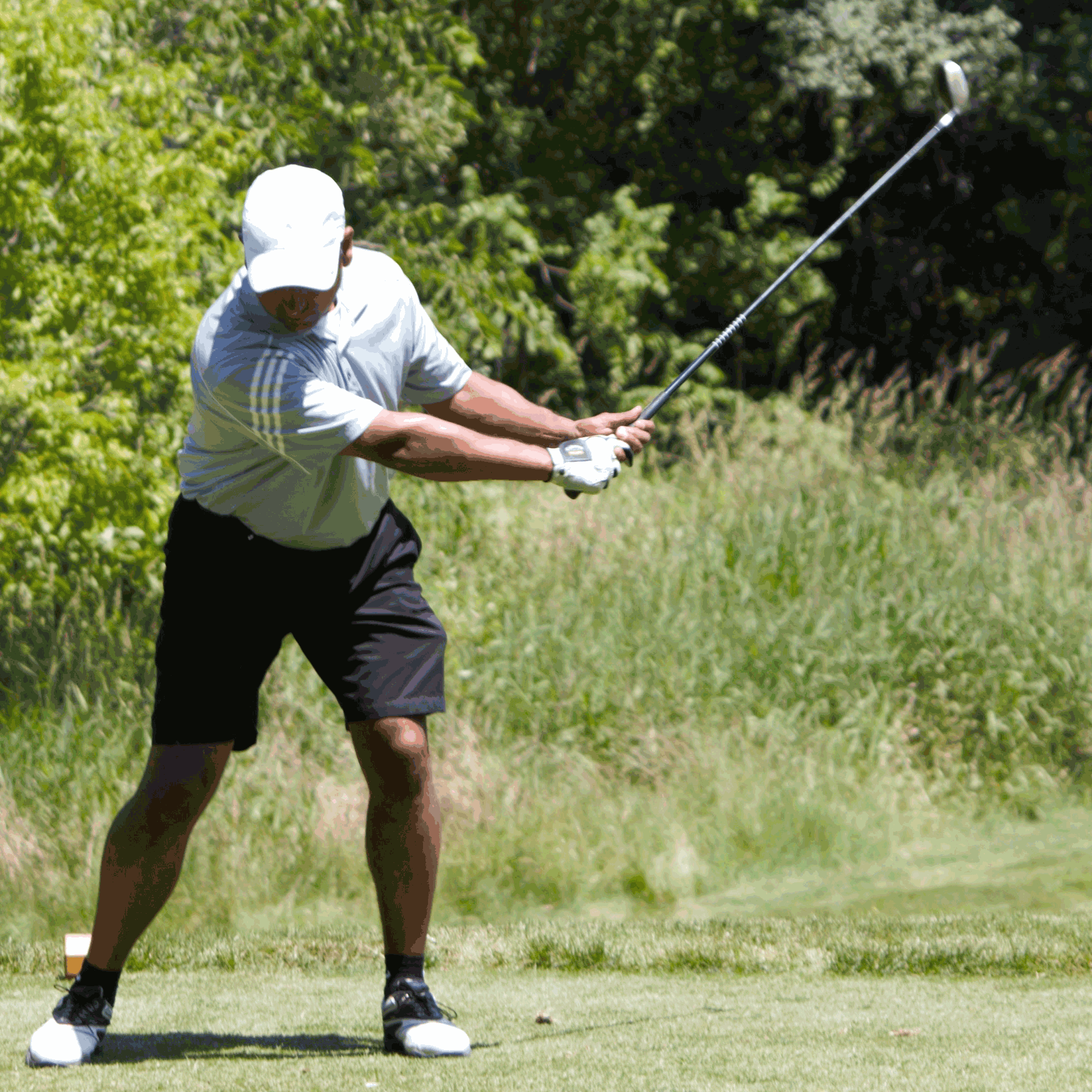| The Values That Made Us... |
|
My wife and I have invested most of our years in Calabar, and it was only natural. My father studied in theTheologicalCollegefrom 1924 to 1928, under President Earnest Price and Rev. David Davis, the founders of this the thirdCalabarHigh School. In those days, there was little separation between theTheologicalCollegeand the High School, so he was quite fond of telling me how he was taught by the young Philip Sherlock, and Kenneth Carnegie, who at that time were developing as the leaders they were to become in Jamaican Society. He knew well Kenneth's brother Alfred, who made a name for himself in medicine in Westmoreland; and Hugh, Philip's brother, who played a seminal role in the formation of the People's National party with Fairclough, another Calabar boy; and of course, as he used to call him, Little Harry--Dr. Gervais Harry, a household name in St. Mary and, in my time, a member of the Board. I have provided copies of a postcard sent by President Price to my father, offering him a harmonium in his first church. The card carries a picture of the school gathered in the newly dedicated grandstand atChetolahPark. Sad to say, although it was still used in my day, by then it had developed a rather unsavory reputation as a place for athletic sports of a rather nocturnal variety. I was taken to school by Rev. Walter Foster and Mr. Murray White, both of whom were later to become headmasters. Wally Foster could not drive; indeed, until his death he never learned to drive, so Murray-White was pressed into service. It was one of those New Year celebrations which churches have, and Mr. Foster was the guest preacher. Since school was to open the following day, my parents asked them to take me toKingstonwith them and enroll me next day. At that time I was not a boarder, but stayed with the Baptist minister inJonesTown, the eminent Menzie Sawyers, who was the only representative of the church on the platform whenJamaicawas given Universal Adult Suffrage in 1944. So it was that this country boy fromSt. Thomascame to Calabar on the 5th of January 1942. That was 64 years ago. There were 80 boys in the school then and everybody sort of knew everybody, sort of. There was the occasion on which a 2nd form boy approached me--I was then in the 5th form--to say that a certain master wished to speak with Horace Russell and if I, Sargie, knew who he was? Ah, the names we had and the names we gave: Iron Toe, Runt, Sloppy, Midnight and its variants like Midnight Express, Saddle Head and Cabbage Ears, to name a few. The strange thing I was to discover was that these names had a way of repeating themselves over the years. Looking back now, I am amazed at what was done with so little and how creative our teachers had to be. The Chemistry and Physics lab was an old, refurbished garage, and we were taught by a pastor who had once been a pharmacist. This meant that all advanced teaching was done at Wolmer’s where there were real labs and, what was more, girls. Mathematics was different, since we led all schools, in that we had Murray-White who had a first degree in Mathematics fromLondonUniversity. Later, Rev. Cecil Woodyatt was sent out by the BMS (Baptist Missionary Society) of London to take over, because Murray-White had got married and left, and Rudolph Robinson who--like his brother Leslie--had shown great aptitude for that subject, needed a tutor. Earlier, Jack Bruton started to teach Spanish and Calabar became the first school to depart from the traditional French and to offer it as an examination subject. Later, Bruton resigned and departed for the British Embassy inSpain. Chapel was a must. There were two chapels each day. The morning chapel was formal but the evening chapel was less so. It was standard in morning chapel to sing St. Patrick's Breastplate, God be in my head and in my understanding, and if Rev. Foster was taking chapel, it was We build the school on thee O Lord. We had a pipe organ given to us by a grant from the Andrew Carnegie Foundation. It had to be pumped and we vied for the opportunity to do so, especially during mango time, as there was an out-of-bounds mango tree near the back window to the organ. We also had an orchestra at one stage, during my time, with trumpet and trombone--never any drums, there was a thing against that—and, on one occasion, the musicians got quite happy with trumpets and trombone competing; to which Mr. Davis, who was taking chapel, responded by stopping the band with the words, "I will not have the Salvation Army in here." This did nor prevent Barris Malcolm in later life from creating a band, which became famous locally and abroad. Music and drama and painting played a great role in the school. We all had classes in modeling and painting in the lower school, and if there was talent in the upper school. In the first Pantomime, Calabar masters had leading roles and helped in its production. They also appeared in the Shakespeare plays, produced regularly by the Fowlers at the Garden Theatre. It is no wonder that Calabar boasts the likes of a Lloyd Hall, whose contribution to Caribbean music has been greatly overlooked; and Chester Harriott, who was an accompanist at the BBC in London; and a Rhoden, also of international fame; and a Noel Vaz in the theatre; and several others in the area of dance, popular music and entertainment in radio or television. There is a trend today in academic circles to be functional, and there is very good reason for that. Developing nations, especially, need to have a utilitarian approach to education; but, as in developed nations, I wonder if this has not gone too far. When I read many of the position papers from the schools and universities, on the solutions to the touching problems of our time, there tends to be the omission of the humanities. There is a tendency to forget the observation by all religious prophetic traditions, that the human being does not exist on bread alone. There is a paucity of the teaching of the attributes of the spirit. So that students are driven to seek it outside the walls of academia, in the aroma of weeds or with the tinkle of glass. I don't know what it is now, but this was never the case in Calabar of my time--and I am not talking about Scripture class, which was sometimes most boring and unchristian. I am talking about that love affair with philosophy and critical thinking. It was present in the classrooms and sometimes on the playfields, under the trees as we played catch football, and in the dormitory, that we learned-- together with and from our peers, the masters in charge and the older boys-- to think through the deeper issues of life. Of course, in later life it got some of us into all sorts of trouble. We just could not think inside the box. Just ask the old- timers like O.T. Fairclough or Vernon Arnett or Roger Mais, and in recent years Winston Davis or Rupert Lewis or Norman Girvan or P J Patterson, to name a few. Long before Calabar added a chaplain, and I was the first one, the challenge of the poor and the dispossessed in Jamaican andCaribbeansocieties, as well as the development of self-worth and personal integrity, were made its care not only by preaching but also in practice. I well remember the day when the Rev. Walter Foster threatened to write his resignation because—as I learned later--he felt that the administration was about to expel a boy unjustly for taking up a stone to throw at another boy. I must hasten to say that the event occurred the same week in which a boy was in fact killed by a thrown stone, at another secondary school, and the then-acting headmaster panicked and wanted to make an example of this student. Mr. Foster, however, maintained that no human being should be the subject of an ethical experiment, and that each person had to be valued for himself or herself and be treated so. The boy was not expelled but punished in some other way. That boy later became the head of a thriving insurance company. That, I believe, was why although outwardly it appeared that Mr. Foster's class was the rowdiest and most disorganized, it got the best results. Then, there was the day when we were reading a hygiene book by Daniels in class. Old D, as Mr. Davis was called, was sitting with half his back to the class and we thought he was asleep. In fact, I am sure he took a snooze now and then. I can't remember who was reading but it was about the Tropics and food in the tropics. The sentence that was read was maintaining that because it was hot in the tropics, this made the inhabitants of these regions slow, lethargic and lazy as a compensation for the heat. You should have been there when the sentence was read. Old D spun around as if stuck by a pin and said, “I live in the Tropics. I am neither slow nor lazy. Please bring all those hygiene books to me and, Russell, take them to the office.” We never saw those books again, and we learned to recognize and avoid that subtle prejudice which saps at self worth and confidence by the use of the authority of the written word, couched in pseudo science or, for that matter, in pseudo humanities. This, mark you, was long before Sparrow was singing, Dan is the Man in the Van and the Rastafarian assertion of language as the means of ‘downpression.’ I have spoken of the legacy my brother, Burchell, and I have received at Calabar. I am sure that had he been here he would have added his own nuance to the story, as many of you listening have already done, as memories come flooding back. But not many of us present here have made the investment the Russells have made in Calabar. Two of our three children grew up on the Calabar compound. Our son, Jonathan, attended Calabar. Our eldest daughter, Elisabeth, taught at Calabar and continues to have an ongoing interest in Calabar. Calabar provided my wife and me our first jobs on my return from study inEngland. The first house as you enter the compound, was built for us and was our first home. Although I left to do other things on the national and international scene, my wife, Beryl, remained and eventually was appointed the first female vice-principal of Calabar. She made history. Still for her, impotent as that is, Calabar means for her primarily the deep love she bears her students and the love they bear for her. It would be remiss if, on an occasion like this, she did not say a word. I am going to ask Beryl, my wife of 49 years, to speak; and then I will have a short word to close. [Mrs. Russell speaks] The name our school bears comes from the Delta of Nigeria, by way of a village in Trelawny. There stands on a rugged crag in Rio Bueno, the hurricane-gutted remains of one of the oldest Baptist churches in the nation. About half mile up the road from it, is thevillageofCalabarwhere the ruins of the first Calabar, together with the graves of the first President, still remain. It was in this inauspicious place that 8 students and two teachers constituted the first Calabar institution on the sixth of October 1843. Just think of it--five years after Emancipation, these visionaries devised a means by which, through education, a society of slaves could be transformed into a community of free people; and it has been this vision of a community of people free to think their own thoughts, and to put them into action for the benefit of all, which has been the driving force behind Calabar these one hundred and forty three years. I am asking all of us gathered here tonight, in one way or other heirs of the Calabar legacy, never to lose sight of the legacy handed down to us, the legacy to nurture men and boys from the bonds of dark slavery into the light of glorious freedom. This was the driving force, which impelled David East in 1869 to move Calabar toEast Queen Streetand to develop a larger teacher-training program, adding an elementary school and an Industrial school. It was the same spirit, which led the Calabar management committee, as it was called then, to move toSlipe Pen Roadand to invite the Quakers to join with them by adding Studley Park Lodge, in order to create theCalabarHigh Schoolas we have it now. The School as we have it, was constituted on September 12, 1912 but its vision was clearly alive long before. It was, and still remains, the vision of the transformation of the bound into the free. But there is a warning I must give. I have a Bishop friend who is fond of reminding his hearers that although the People of Israel were liberated from Slavery inEgyptby Moses, they nevertheless took Pharaoh with them in their back pockets to the Promised Land. There is the ever-present danger of distorting the vision and settling for less than true freedom. As no woman can be a little pregnant, so no person or nation can be a little free. We must confess that, at times, the Calabar leadership has been confused by prevailing trends: like when the BMS (Baptist Missionary Society) of England sent out a consultant to see whether the school was financially viable, as if the success of a school depended primarily on its financial viability; or, the time when the late Floriziel Glasspole, the Minister of Education, had to call in the Board to set their house in order, because the Headmaster appeared to be behaving like a Planter on an 19th century Slave Plantation. Yes, there were those times--times of poor exam results and almost intractable behavioral problems. Still, by and large, Calabar can be proud that the legacy is secure and that the vision remains untarnished: that of the nurture and transformation of boys into men, who are catalysts for the transformation of men and women from a state of bondage--whatever that might be--into the splendor of freedom, not only in Jamaican and Caribbean society, but in whatever place they find themselves. And in case we forget all we have said and thought and pledged here tonight, may this prayer, written for our nation by a Calabar Boy, be a constant reminder of The Values that made us and The Vision we share. Eternal Father, Bless our Land, Guide us with thy mighty hand, Keep us free from evil powers, Be our light through countless hours, To our leaders, great defender, Grant true wisdom from above, Justice, truth be ours forever,Jamaica, land we love, Jamaica,Jamaica,Jamaica, land we love Teach us true respect for all, Stir response to duty's call, Strengthen us the weak to cherish, Give us vision lest we perish, Knowledge send us Heavenly Father, Grant true wisdom from above, Justice, truth be ours forever,Jamaica, land we love, Jamaica,Jamaica,Jamaica, land we love So tonight and Oh, if ever Duty's voice is ringing clear, calling men to brave endeavour--We will answer, “We are here.” |









